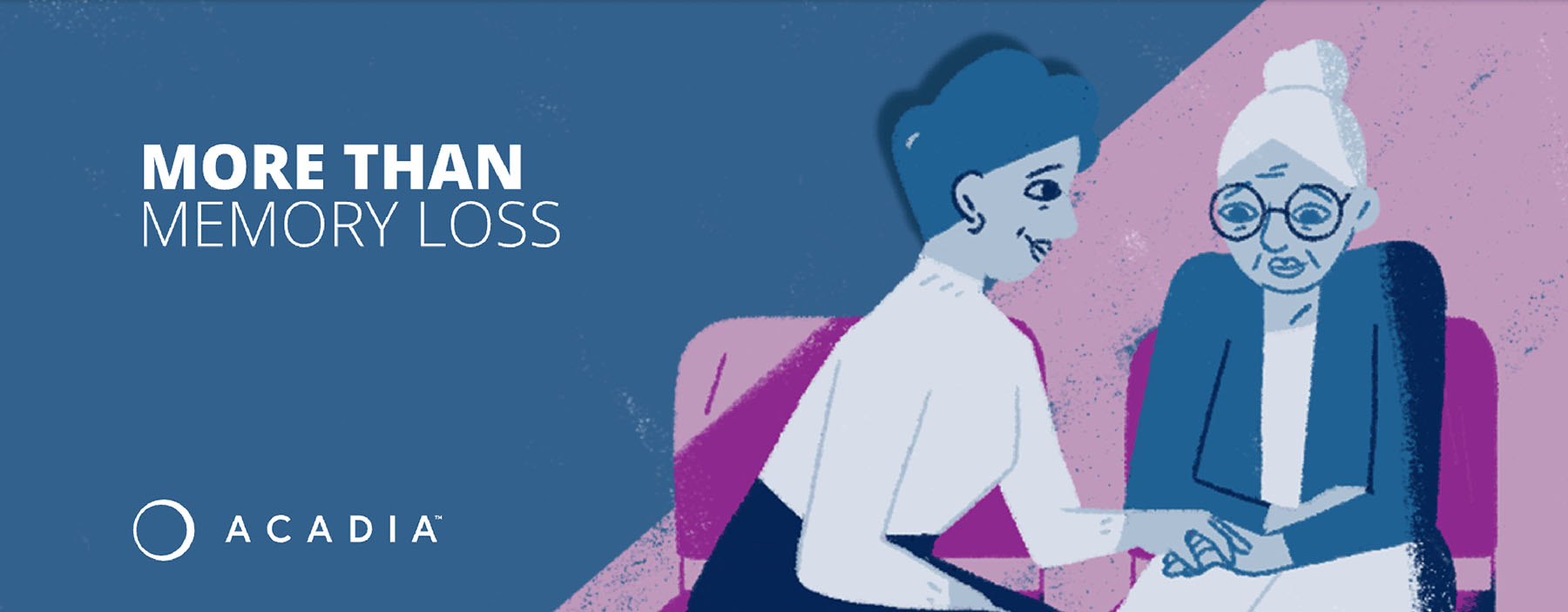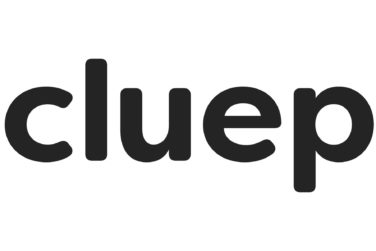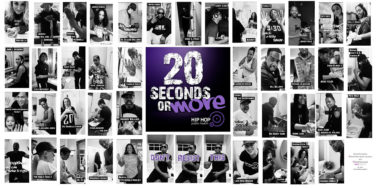More Than Memory Loss
Acadia Pharmaceuticals and Heartbeat
Dementia affects an estimated 7.9 million people in the U.S. Many people are familiar with the impact the disease has on a person’s memory but the neuropsychiatric symptoms of dementia—specifically hallucinations and delusions—aren’t well known. Yet, about 30% of people with dementia may start to have hallucinations where they see people, animals, or objects that are not there, or delusions where they believe things that aren’t true such as their loved ones are stealing from them. Helping make this aspect of dementia better known to families caring for loved ones with dementia was the primary goal of Acadia Pharmaceuticals and Heartbeat.
In doing market research ethnographies, the companies learned that when a person with dementia first begins experiencing hallucinations and delusions, it can confound the loved ones who care for them. It can also strain a family’s relationship, even to the point of moving their loved one to a nursing home. Additionally, they found when families learned that their loved one’s hallucinations and delusions might occur with dementia, it helped them better understand what their loved one was experiencing and how best to care for them.
With these insights in mind, the companies aimed to tell a story that families caring for loved ones with dementia could relate to and one that made clear the connection between dementia and hallucinations and delusions. So, they drew upon the true story of a mother who has been diagnosed with Alzheimer’s disease as told by the daughter who cares for her. To convey the daughter’s emotional story and depict her mother’s hallucinations and delusions, they used an animation style that was dramatic and expressive, and used abstraction to convey hallucinations and delusions.
The story painted a full picture of the mother: from before she had dementia, to her diagnosis with Alzheimer’s, to the daughter’s confusion when her mother starts experiencing delusions, and how she feels after learning they are related to her mother’s dementia. Showing this range of experiences helped to accurately depict the real strife the daughter experiences while keeping the deep love and respect she has for her mom ever present.
The video was the centerpiece of an educational website on dementia-related hallucinations and delusions: More Than Memory Loss. The story was also used to create an integrated digital media campaign to drive traffic to the site and specifically to the story.
Over the course of a two-month campaign, approximately 121,000 people engaged with the content on MoreThanMemoryLoss.com and 18,000 visitors engaged with the story.







